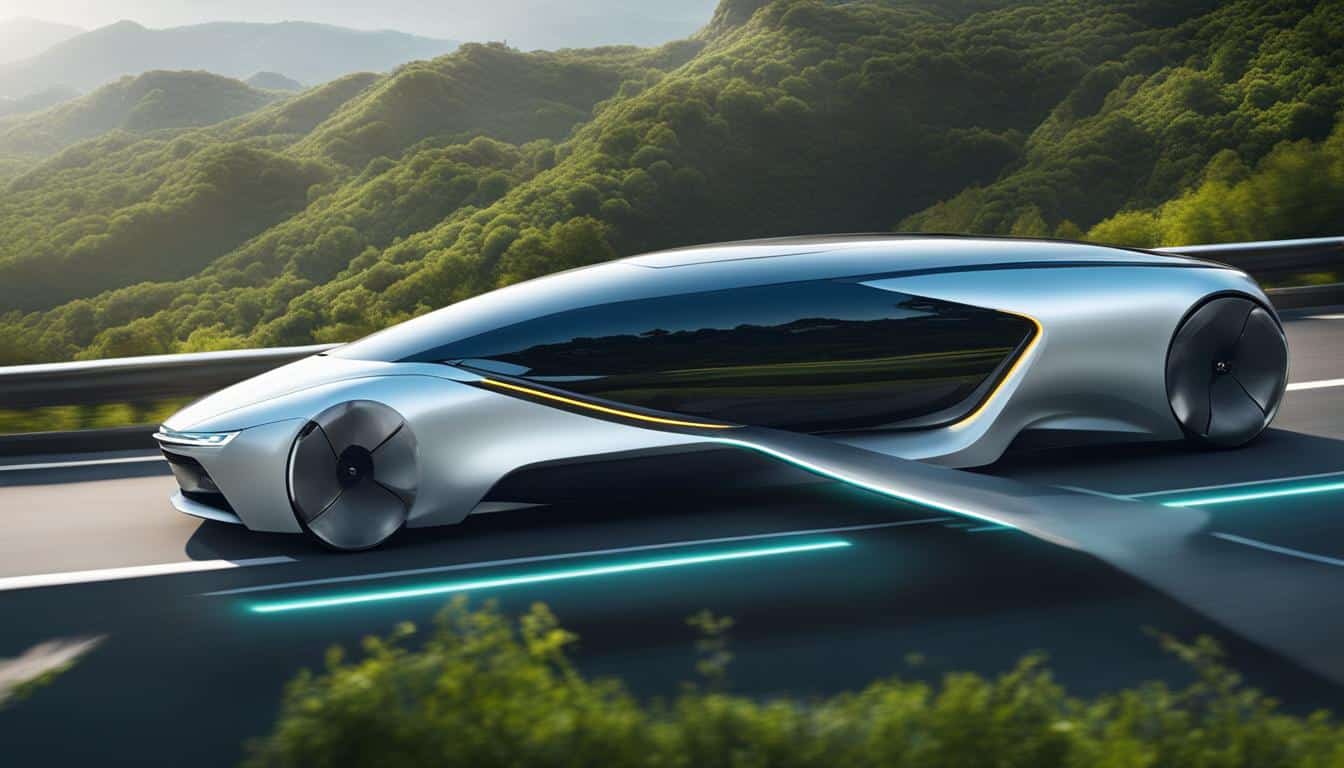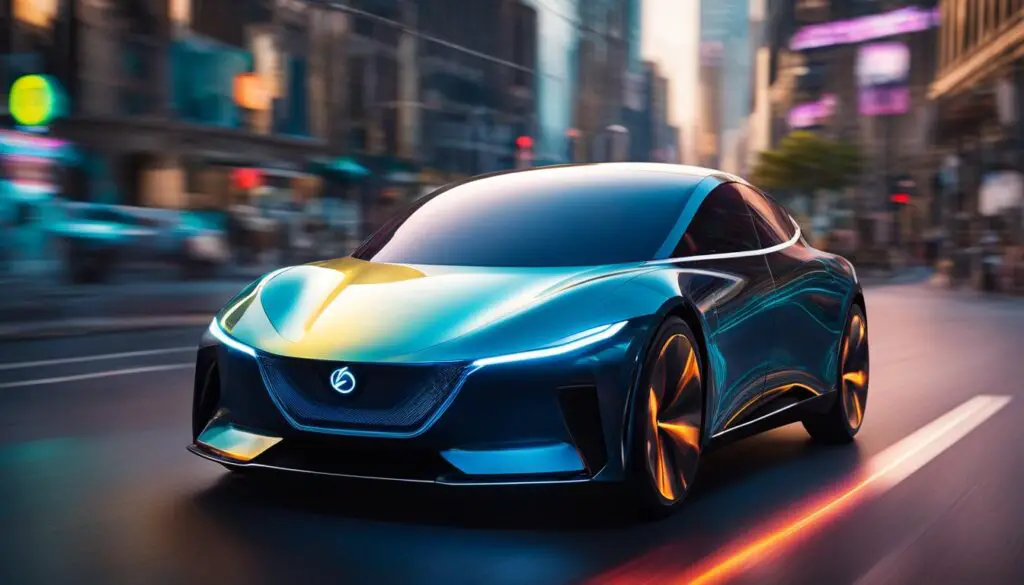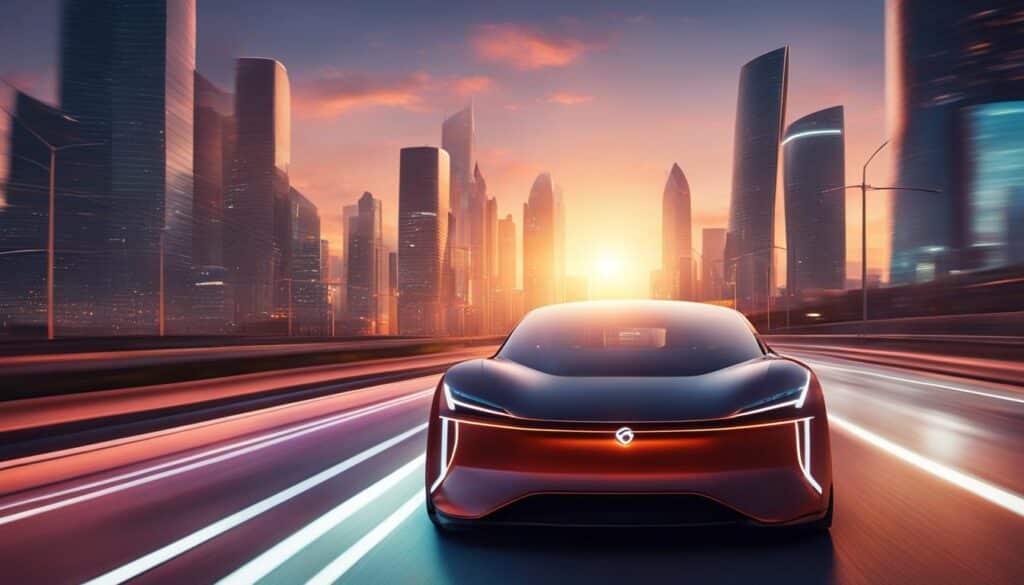
Autonomous Driving: The Role of EV Technology in Shaping the Future
Electric cars have revolutionized the automotive industry with their sustainable and eco-friendly nature. However, it is the integration of Artificial Intelligence (AI) that is propelling electric cars into the future. By leveraging technological advancements, electric cars are set to become more than just a mode of transportation. With AI at their core, electric cars will offer a seamless and personalized driving experience unlike anything we have seen before.
By 2025, electric cars will be equipped with AI-powered features that will revolutionize the way we drive. From autonomous driving to voice-activated assistance, smart charging to predictive maintenance, AI will shape the future of electric cars and the entire automotive industry.
With autonomous driving capabilities, electric cars will navigate through traffic, avoid accidents, and reach our destination safely without any human input. Voice-activated assistance will allow us to interact with our cars effortlessly, performing tasks without pressing a single button. Smart charging will optimize charging times, taking into account our schedule and electricity prices. Predictive maintenance will proactively detect issues, reducing repair costs and increasing the longevity of our cars.
Key Takeaways:
- Electric cars are being transformed by the integration of AI, revolutionizing the automotive industry.
- By 2025, electric cars will offer autonomous driving, voice-activated assistance, smart charging, and predictive maintenance.
- AI-powered features enable enhanced safety, efficiency, and a personalized driving experience.
- Reduced emissions, increased safety, and efficient resource utilization are some advantages of AI-powered electric cars.
- The rise of intelligent electric cars driven by AI in 2025 will optimize battery usage, enhance safety technologies, and offer voice-enabled dashboards for convenience.
With AI-powered electric cars leading the way, we can look forward to a sustainable and intelligent future of transportation. The possibilities are endless as electric cars continue to evolve and shape the way we move from one place to another.
How AI is Paving the Way for the Future of Electric Cars
The integration of AI in electric cars has revolutionized the driving experience, making them smarter, safer, and more efficient. By 2025, electric cars will be equipped with advanced AI technology, enabling autonomous driving and enhancing the overall user experience.
The driving force behind autonomous driving is the integration of AI-powered sensors and cameras. These sensors collect data about the surrounding environment, allowing the car to navigate through traffic, detect obstacles, and avoid accidents. With AI algorithms constantly analyzing the data, electric cars can adapt to changing road conditions and make real-time decisions to ensure a safe and efficient journey.
In addition to autonomous driving, AI also enables voice-activated assistance in electric cars. Drivers can interact with their vehicles using natural language commands, eliminating the need to manually operate buttons or touchscreens. Voice-enabled dashboards provide a seamless and convenient way to access various functions and perform tasks without distractions.
AI-powered charging stations are another game-changing feature of electric cars. These stations utilize AI algorithms to optimize charging times based on the driver’s schedule and electricity prices. By intelligently managing the charging process, electric cars can maximize the use of renewable energy sources and minimize the strain on the power grid.
Furthermore, AI-driven predictive maintenance plays a crucial role in ensuring the longevity and cost-effectiveness of electric cars. By analyzing data from various sensors and systems, AI algorithms can detect potential issues before they occur. This proactive approach not only reduces the risk of breakdowns but also minimizes the cost of repairs and extends the lifespan of the car.
With AI bringing significant advancements to the electric car industry, the future holds endless possibilities for innovative features and enhanced driving experiences. As AI continues to evolve, electric cars will become an integral part of our transportation system, offering sustainable, safe, and convenient mobility for everyone.
Benefits of AI-Powered Electric Cars:
- Enhanced safety through autonomous driving capabilities
- Convenient voice-activated assistance for a hands-free driving experience
- Optimized charging times for efficient and sustainable energy use
- Predictive maintenance to detect and prevent potential issues
Comparison of AI Features in Electric Cars
| AI Feature | Description |
|---|---|
| Autonomous Driving | Enables the car to drive itself, navigating through traffic and avoiding accidents without human input. |
| Voice-Activated Assistance | Allows drivers to interact with the car using natural language commands, providing a hands-free and convenient experience. |
| AI-Powered Charging Stations | Optimizes charging times based on the driver’s schedule and electricity prices, maximizing the use of renewable energy sources. |
| Predictive Maintenance | Detects potential issues before they occur, reducing repair costs and extending the lifespan of the car. |
The Advantages of AI-Powered Electric Cars
The integration of AI in electric cars offers a range of benefits. With reduced emissions, AI-powered electric cars contribute to a cleaner environment by producing less carbon emissions than traditional gasoline cars. Additionally, autonomous driving reduces accidents caused by human error, and predictive maintenance prevents issues before they occur, enhancing safety. Smart charging enables efficient use of resources by optimizing the use of electricity during off-peak hours, reducing the strain on the grid. These advantages make AI-powered electric cars a compelling choice for eco-friendly travel.
By harnessing the power of artificial intelligence, electric cars are transforming the way we commute. With their reduced emissions, AI-powered electric cars play a crucial role in combating climate change and improving air quality. The advanced technologies integrated into these vehicles not only reduce their impact on the environment but also enhance safety and promote efficient resource usage.
Reduced Emissions for a Cleaner Environment
One of the most significant advantages of AI-powered electric cars is their contribution to reducing emissions. Compared to traditional gasoline cars, electric vehicles produce significantly lower levels of carbon emissions. By embracing electric cars powered by AI, individuals can actively participate in the global effort to combat climate change and protect the environment.
Increased Safety through Autonomous Driving
AI-powered electric cars bring us closer to the reality of fully autonomous driving. By leveraging advanced AI algorithms, these vehicles can navigate roads, detect obstacles, and respond to potential risks. The elimination of human error reduces the likelihood of accidents, making our roads safer for everyone. With AI at the helm, electric cars are revolutionizing transportation by prioritizing safety and paving the way for a future with fewer accidents and injuries.
Efficient Use of Resources with Smart Charging
AI-powered electric cars go beyond reducing emissions and enhancing safety. These vehicles also prioritize efficient resource usage through smart charging technology. By optimizing electricity consumption during off-peak hours, electric cars can minimize strain on the power grid while making the most of available resources. Smart charging enables users to charge their vehicles when electricity demand is lower, ultimately contributing to a more sustainable and resilient energy system.
| Advantages of AI-Powered Electric Cars | |
|---|---|
| Reduced Emissions | AI-powered electric cars produce lower carbon emissions compared to gasoline cars, contributing to a cleaner environment. |
| Increased Safety | Autonomous driving reduces accidents caused by human error, making roads safer for all users. |
| Efficient Resource Usage | Smart charging optimizes electricity consumption, reducing strain on the power grid and promoting sustainable energy usage. |
Overall, the integration of AI in electric cars offers numerous advantages, ranging from reduced emissions to increased safety and efficient resource utilization. As we embrace AI-powered electric cars, we can transition towards a more sustainable and environmentally friendly transportation system, leading the way to a brighter future.

The Rise of Intelligent Electric Cars: How AI is Changing the Game in 2025
Intelligent electric cars are at the forefront of technological advancements, bringing together the power of AI and electric vehicle (EV) technology. In 2025, AI will drive significant transformations in the automotive industry, introducing new features and enhancing the overall driving experience. These intelligent electric cars leverage AI to optimize battery performance, enhance safety, and provide unprecedented convenience to users.
Battery Optimization for Extended Range and Improved Efficiency
One of the key areas where AI is making a significant impact is battery optimization. AI-powered algorithms analyze various factors such as driving patterns, weather conditions, and road data to optimize battery life and usage. By intelligently managing energy consumption, intelligent electric cars can achieve extended range and improved energy efficiency.
| Benefits of Battery Optimization | AI-Powered Features |
|---|---|
| Extended range | Predictive range estimation |
| Improved energy efficiency | Optimized power distribution |
| Reduced charging time | Smart charging algorithms |
Cognitive Automation for Enhanced Safety
Intelligent electric cars leverage cognitive automation to revolutionize safety technologies. AI-powered systems enable intelligent adaptive cruise control, which adjusts the car’s speed to maintain a safe distance from other vehicles on the road. By analyzing real-time data from sensors and cameras, intelligent electric cars can make split-second decisions to avoid potential accidents, greatly enhancing road safety.
Voice-Enabled Dashboards for Seamless Interaction
Interacting with intelligent electric cars has become more intuitive and convenient with voice-enabled dashboards. AI-powered voice recognition technology allows drivers to operate various features and functions using natural language commands. Whether it’s adjusting the temperature, playing music, or accessing navigation, drivers can perform tasks hands-free, ensuring a safer and more enjoyable driving experience.
Predictive Maintenance for Cost Reduction and Reliability
AI-driven predictive maintenance is transforming the way maintenance is conducted in intelligent electric cars. By analyzing real-time data from sensors and performance indicators, AI algorithms can proactively detect potential maintenance issues before they occur. This enables car owners to address problems early on, reducing repair costs and ensuring the long-term reliability of their vehicles.
Intelligent electric cars are spearheading the future of transportation, powered by the seamless integration of AI and EV technologies. These vehicles offer unparalleled efficiency, eco-friendliness, and an engaging driving experience. With battery optimization, cognitive automation, voice-enabled dashboards, and predictive maintenance, AI is changing the game for electric cars in 2025.

Green Machine: How Electric Vehicles Are Driving Sustainability in the Auto Industry
Electric vehicles (EVs) are paving the way for a greener future in the auto industry. With reduced emissions, EVs are a more eco-friendly transportation option that significantly contributes to the reduction of air pollution and the protection of our environment. By opting for electric cars, consumers are actively choosing to make a positive impact on the planet.
One of the key advantages of electric vehicles is their lower maintenance costs. Compared to traditional gasoline-powered cars, EVs have fewer moving parts, resulting in reduced maintenance and repair expenses. This not only saves consumers money in the long run but also contributes to a more sustainable lifestyle by minimizing waste and the need for substantial resources.
Furthermore, the rise of electric vehicles has brought about a wide range of options for consumers. From luxury sedans to electric trucks, there are now more choices available to fulfill various needs and preferences. This increased availability encourages the adoption of electric vehicles on a larger scale, thus driving sustainability in the auto industry and diversifying the market.
Overall, electric vehicles are instrumental in reducing pollution, lowering maintenance costs, and offering consumers more options. As they continue to grow in popularity, it is clear that EVs are significantly contributing to a more sustainable and eco-friendly future in the auto industry.
FAQ
Are electric cars equipped with AI technology?
Yes, electric cars are integrated with AI-powered features such as autonomous driving, voice-activated assistance, smart charging, and predictive maintenance.
What advancements are expected in electric cars by 2025?
By 2025, electric cars will have the capability for autonomous driving, enabled by AI-powered sensors and cameras. They will also feature voice-activated assistance, smart charging, and predictive maintenance.
How does AI enhance the driving experience in electric cars?
AI technology enables a personalized driving experience by optimizing battery life and usage, enhancing safety through adaptive cruise control systems, and allowing drivers to interact hands-free with their vehicles using voice-enabled dashboards.
What are the benefits of AI-powered electric cars?
AI-powered electric cars contribute to a cleaner environment by reducing emissions, enhance safety through autonomous driving and predictive maintenance, and optimize resource usage through smart charging.
Why are electric vehicles considered eco-friendly?
Electric vehicles emit fewer emissions, reducing air pollution and protecting the environment. They also have lower maintenance costs and provide consumers with a wide range of vehicle choices, promoting sustainability in the auto industry.
